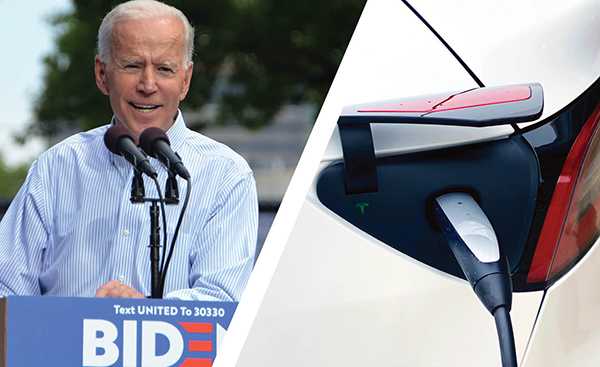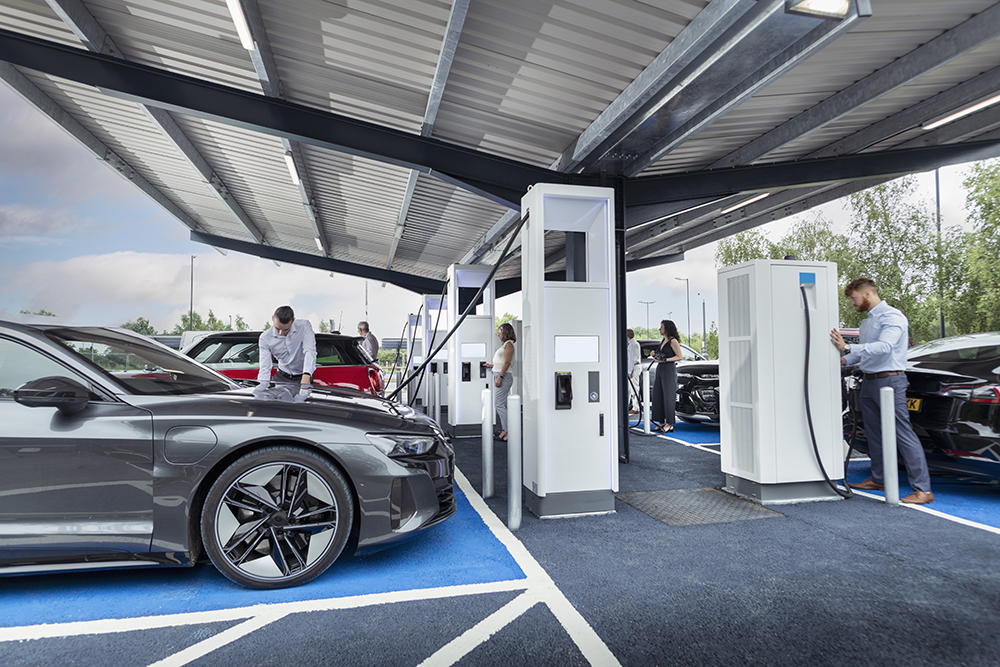After weeks of back-and-forth on the infrastructure bill, President Joe Biden announced, “We have a deal,” standing with a group of Republicans and Democrats after a meeting in the Oval Office. “I think it’s really important we’ve all agreed that none of us got all that we wanted.”
EV advocates certainly aren’t going to get all we wanted, but we’re likely to get something substantial from the $1.2-trillion Bipartisan Infrastructure Framework, if it becomes law. According to a White House fact sheet, the proposal would provide $7.5 billion for “a national network of electric vehicle (EV) chargers along highways and in rural and disadvantaged communities,” and $7.5 billion “to electrify thousands of school and transit buses across the country.”
It’s far less than half of the generous loaf President Biden originally had in mind. In March, the Administration proposed $15 billion for infrastructure, $45 billion for school and transit buses, and $100 billion in new consumer rebates.
However, politics is the art of the possible, and there’s plenty to like in this sausage, which also includes $66 billion for rail, $49 billion for public transit, and $73 billion for upgrades to the electrical grid. The White House is sticking with its announced goal of building 500,000 charging stations, even though the funding amount will be half the amount originally envisioned.
Perhaps the most welcome news is that the idea of a federal EV tax appears to have been scrapped. A preliminary version of the infrastructure proposal included an “annual surcharge on electric vehicles” as one of the financing sources for the new investments. This new tax does not appear on the White House’s fact sheet, nor does a separate proposal to increase the federal gas tax. The New York Times reported that both ideas ran afoul of Biden’s pledge not to increase taxes on the middle class.
The bipartisan legislation is expected to move through Congress alongside a separate bill that would direct trillions more to other “infrastructure” initiatives that the GOP opposes.
House Speaker Nancy Pelosi has said earlier that her chamber won’t consider the bipartisan deal without the broader package of legislation, which Democrats will attempt to pass using the budget reconciliation procedure in order to bypass a Republican filibuster in the Senate. Biden said he would only sign the Bipartisan Infrastructure Framework if it is accompanied by the reconciliation bill. [Editors’ note: The President later said that he misspoke, and did not mean to threaten to veto the bipartisan infrastructure bill.] The process of getting both bills passed is expected to take months.
Sources: Automotive News, New York Times










































































































